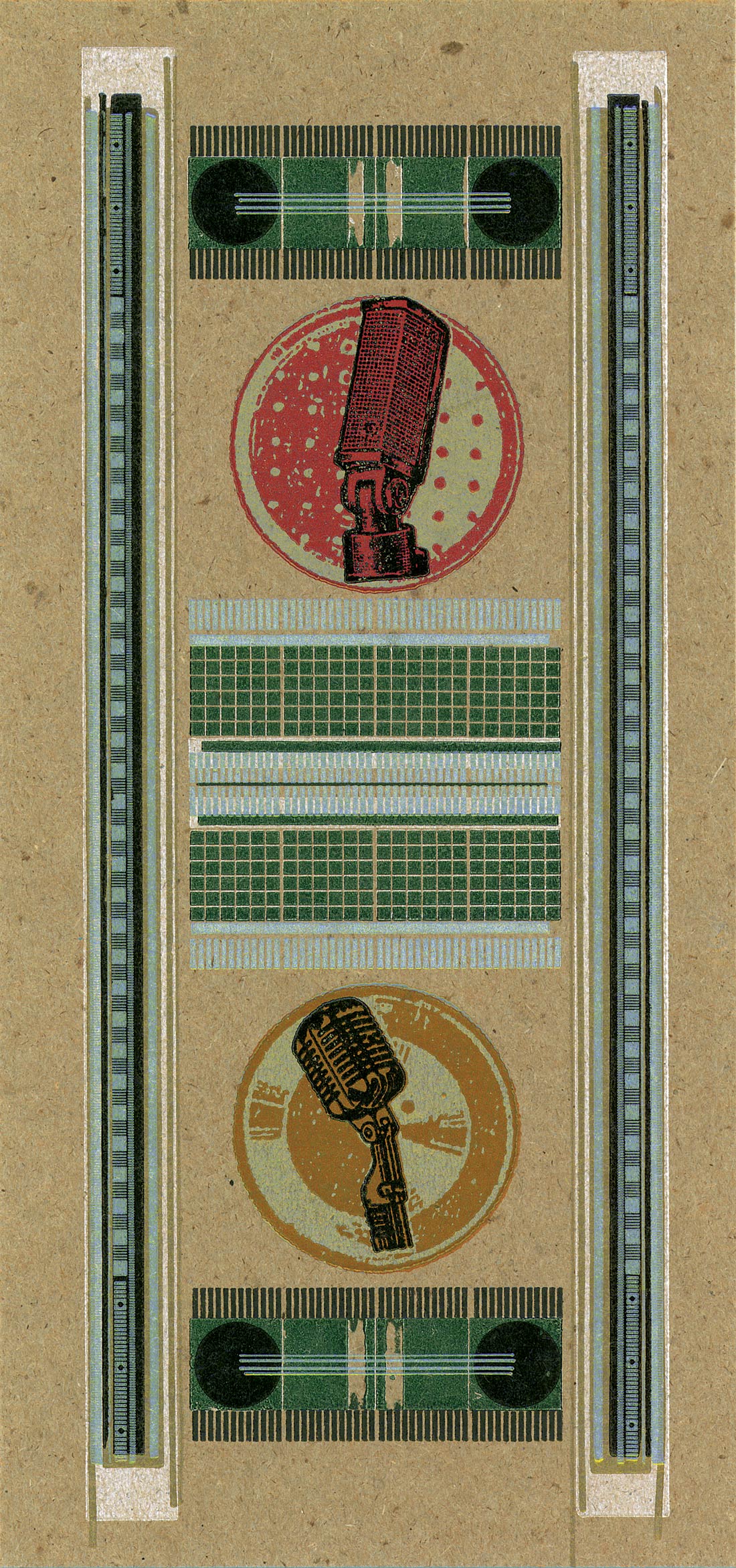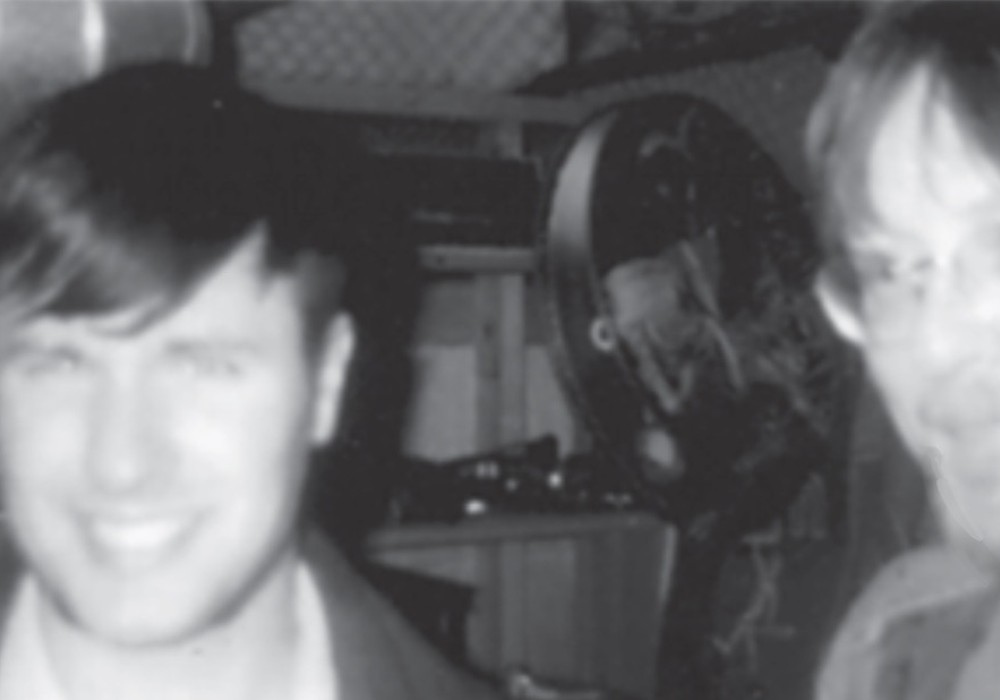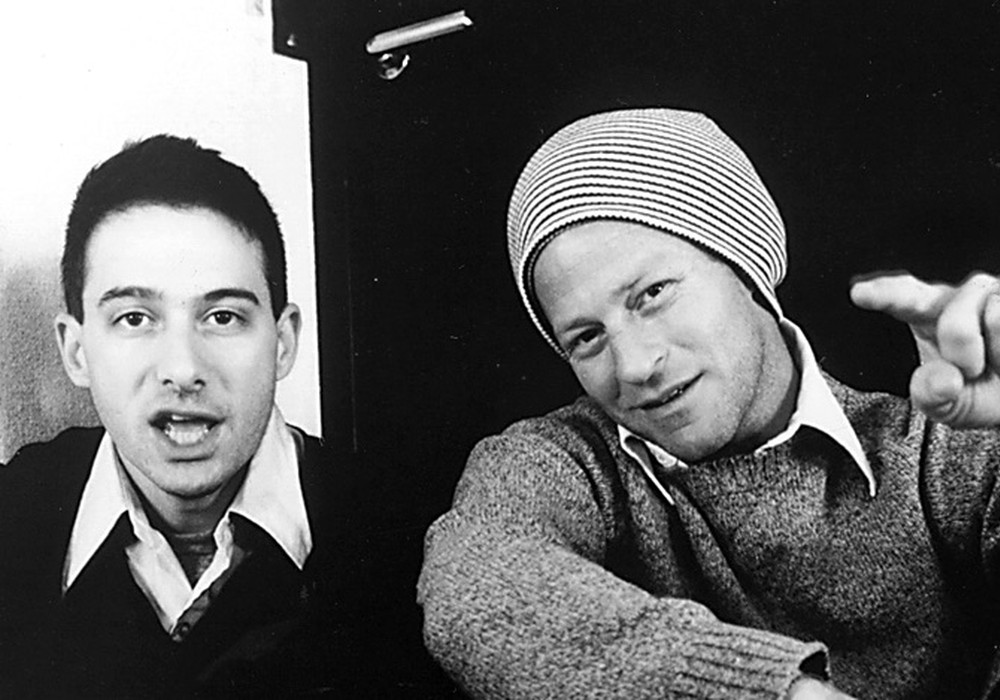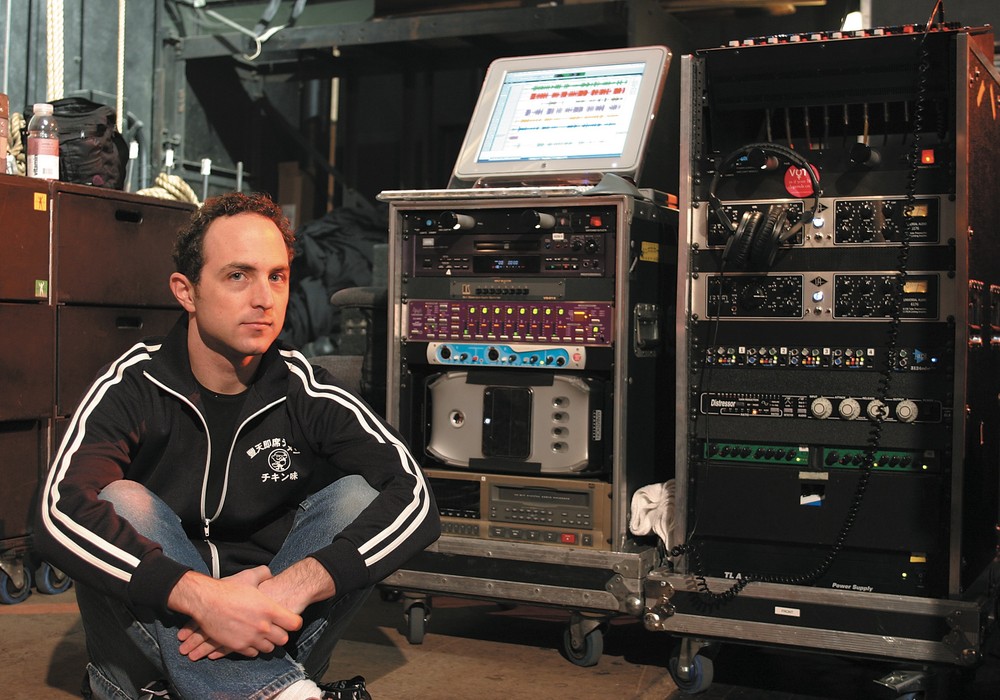In the intro for the Tape Op book you mention how you used to battle the old analog tape machines to get good sounds. You seem to like both now though.
Well, everyone is saying digital is getting better and better. People forget that analog is getting better and better too. It's not static. Now, people are waxing lyrical about those great records in the '70s and '60s and how they sounded, that analog sound. I cut my teeth on 4-track — in those days you couldn't record at an elevated level. Analog tape really distorted. It sounded like shit. It distorted, it wasn't just saturated. There's a point where there's saturation and then you can go beyond saturation into pure distortion. So you had to record conservatively if you wanted to get a vocal where the tape didn't automatically d-ess it, or the kick drum didn't just disappear completely. On the way in it would sound like a big kick drum, but on the way out it'd be a few dBs down if you hit the tape too hard. So it was a delicate balance to record. It was a real art, you had to know your tape, you had to know that machine you were on, the console, the meters. The meters especially were always deceptive. That was the hardest thing for me to find out, the difference between a VU meter and a PPM meter and what that means in terms of level. It was so many factors when you were recording in those days. You had to be very, very careful. Nowadays, you just fucking slam the tape. There's no parameters anymore. Analog is great now. It's really super, and it probably will get better — if people want to invest in it. So anyway, about 30 years ago, if you went beyond 0 level it was trash. And now that some of the early analog rock things are on CD, you can actually hear the distortion, not just the saturation, but the distortion. The oxide was so bad compared to what it is now, I used to actually see a little mountain of oxide after a long day's mixing. EMI made their own brand of tape in those days, and I worked on [Wings'] Band On The Run album as an arranger, and Geoff Emerick told me that when they came back from Africa so much oxide fell off that tape that you could hold it up to the light and see through it. You could see shapes through the tape. So the first thing he did was he put it on an 8-track deck and he copied it over to a 16-track machine. And he had to compress every single track because of the drop outs. So if people are waxing lyrical, if they think that's romantic… you know now they freak out if there's a drop out in digital or something like that. In those days it was a constant battle against that poorly made tape. So you're constantly doing a salvage job. If your kick drum comes back, you wouldn't just monitor it that way. You'd have to put a little EQ on it, a little compression, whatever to make it sound as big as it did when it came in. And the joke was like when the group came in, they're only hearing the playback, but you heard how it went in live, and when it came back it wasn't quite as good. Now, say what you want about digital, but basically, what goes in comes out. So if the kick drum is slamming in digital, it's going to slam on playback too. So people are mistaking a medium for a craft. What we did was we used our craft to make that shit tape sound good. That's what we did.
You had Malcolm upstairs designing equalizers…
Yeah, Malcolm Toft and really you had to be… you know musicians were like five times what they are today in those days. There's some great ones that are dead now, or maybe too old to work, and I learned from the best guys, including Malcolm Toft. He taught me ever so much. But you know, when people talk about analog what they're talking about is that process, from beginning to end. Like in the 4-track days we'd have to bounce it to another machine — that's like three or four generations. That's not a beautiful sound after a while. But analog does have a smooth sound to it. The low end can be nice. But again, it's not what's going in, it's what's coming out. It's a little unpredictable, also unmeasurable. And I could accept that. But when digital got really good, that's when I made the switch. I admit in the early days, 16 bit… my first CD I heard I said, "This is terrible." The first batch of CDs that came back I said, "This is no advancement in sound." But I think both mediums are getting very close to each other, and 5 years from now it'll be laughable that you even can compare the two. I've done some hot, warm digital recordings where I've even fooled the mastering engineer, because I'm using my old techniques. You could use tube pre amps and compressors and even plug-ins to fool the ear. And I will admit that there are some people that are blessed or maybe cursed with super sensitive hearing, but that accounts for maybe two percent of the population. Most people have my hearing. Most people aren't going to analyze music that closely, sonically. What they're listening to is the song and the artist. The band. So you can get crazy with this. It's almost an unarguable topic when it comes down to what the end result is going to be. These days it's still CD, you're not making vinyl anymore, at least not like they used to. So it's that long chain of processes that people call analog but it's not analog, you know.
You get a lot of arrangement work. I thought you must have gone to a music college, but then I read that you dropped out of high school at 15 and started playing music full time. So where did you learn arrangement and that? Do you write charts, do you read music?
Yeah. When I was in high school I did get my diploma in summer school. I didn't drop out, I was two years ahead. I just made that May 1st deadline when I was a kid, so when I was in kindergarten I was four. And then when I was in junior high I was skipped a year because I had a high IQ or something like that. My marks were terrible, but they thought I was bored, so they put me in this progressive class, thinking that my marks would improve, which actually they did. So I was 15 1/2 when I was a senior. I just dropped out of the last few months. Then they told me because I was under 16 I couldn't drop out, so I had to go back to school. Dammit, I hated it. So I had four years of high school. And what was really cool was my music teacher believed in me, the head of the music department, so he got me out of gym and got me another music class. Those were the days when they had great music programs in public schools. So my first period was military band, where I would play tuba, and my second period would be orchestra where I would play double bass. I learned double bass, I played cello, violin, I was in the percussion section, I played Glockenspiel, so I was one of the few kids who could really read well. And I started guitar lessons at 11, so by the time I hit high school I was a very good reader. And I was always in band with guys like horn players in my youth, and even though they were rock n' roll players, the horn players were studying music and they could read. So that's when I started working on my arrangement chops. I would write little charts for them, they'd love it. During high school I had music theory for the full four years, and then my teacher saw how well I was doing, so he would teach me privately. And I had another private teacher for arrangement. I studied this thing called the Shillinger System of Musical Composition. I studied that for a while privately. And I wanted to go to university, but at 17 I was working full time, I was a full time musician, and what's the point, you know. And I would continue to write and when I went up to England, that was one of the main reasons I was brought up to England. My boss, Denny Cordell, wanted an all round co-producer. He couldn't read or write [music]. He said, "I want you to write for 20 strings." And I turned white. It was so frightening. I was used to writing for my horn players. But I love classical music. I was playing classical bass and all that. And I would read Beethoven and Mozart and learn the voicings from how they voiced the string section, and I'd apply that. And then I'd listen to George Martin, and I'd say, "That's what he did. He listened to Bach…" He's taking something classical and old and tried and true and putting it in a pop context, so I just worked it out. And I just imitated him for a few years until I developed some tricks of my own.
Have you ever told him that?
Yes. I had the greatest chat with him a couple years ago. I was doing a string section at his studio in London. It was all computer print out, I'm writing directly in the computer now instead of pencil and paper, and I showed it to him. And he said, "Oh, I'm using another program." And here he is, in his 70s, and he's on his computer, right on the cutting edge. And I told him how much he inspired me. A lot of guys my age say, "Oh, Phil Spector was my inspiration." He wasn't. George Martin was my inspiration.
What other producers and arrangers?
Jack Nietzche was great. Whoever the guy is that wrote the strings to the Shirelles "Will You Still Love Me Tomorrow". You know I get bits and pieces from other people, other producers. I like Pink Floyd productions. Alan Parsons, I think, is great, but he didn't inspire me 'cause we're about the same age, we grew up together. See Phil Spector, he had that personality. He stamped that personality on his productions.
Not invisible.
No. Totally, totally visible. So he wouldn't be my favorite kind of producer. I think George Martin is quite invisible. He actually has put out records, and you can hear he's got his own thing. But with the Beatles he just would do what was appropriate, which was beautiful.
Interviews | No. 75
Mike Odmark: Under The Radar in Nashville, TN
by Saby Reyes-Kulkarni
Though he's the first to tell you that he's still finding his voice, Mike Odmark's sonic signature had arguably begun to rear its head by the time he made his first attempt at recording an album....





